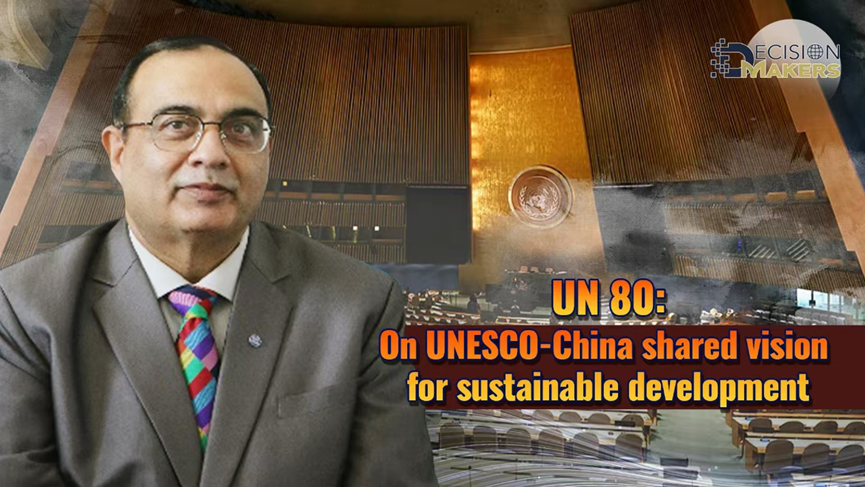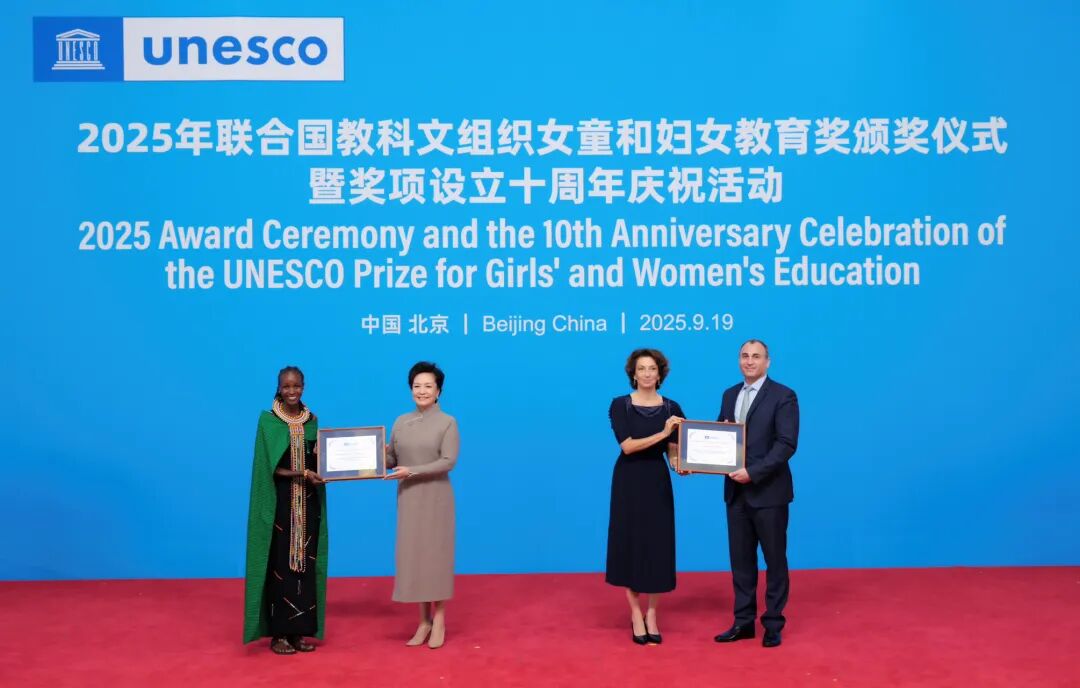-- Interview with CGTN

As we explore the critical theme of global governance, it is essential to recognize its deep connection to UNESCO's mission. China, with its rich civilizational legacy and dynamic modern trajectory, stands out as an ideal partner for these discussions. Our partnership with China is multifaceted, encompassing civilizational, educational and forward-looking dimensions.
An enduring partnership: Advancing education for the future UNESCO's engagement in China is marked by several key initiatives driving positive change and sustainable development. We have significantly intensified our collaboration on Education for Sustainable Development and digital innovation. This includes supporting China's efforts to integrate 21st-century skills into national curricula and promoting equitable access to quality education, particularly in rural areas.
A landmark achievement was the official inauguration of the UNESCO International Institute for STEM Education in Shanghai on 21 September 2025. This marks the first UNESCO Category 1 Center in China, the 10th globally and the first outside Europe and North America. China's commitment to fulfilling its promises to the international community is evident through its support for the institute. It serves not only as a source of advanced STEM (Science, Technology, Engineering, and Mathematics) education concepts and a testing ground for educational ideas but also as an international platform for promoting educational transformation, technological innovation and service to sustainable development. This contributes substantively to global sustainabledevelopment and the building of a shared future for humanity.
We have also placed strong emphasis on girls' and women's education. The UNESCO Prize for Girls' and Women's Education, funded by the Government of the People’s Republic of China, honors outstanding and innovative contributions to advancing girls' and women's education. The Prize, awarded annually to two laureates each receiving $50,000, is unique in showcasing successful projects that improve and promote the educational prospects of girls and women, thereby enhancing the quality of their lives.
On 19 September 2025, the 2025 Award Ceremony and the 10th Anniversary Celebration of the UNESCO Prize for Girls' and Women's Education were held in Beijing. Professor Peng Liyuan, wife of Chinese President Xi Jinping and UNESCO Special Envoy for the Advancement of Girls' and Women's Education, attended and addressed the event together with UNESCO Director-General Audrey Azoulay.
One of the 2023 laureates, China's Spring Bud Project, exemplifies impactful projects addressing this challenge. Since 1989, the Spring Bud Project has supported over four million vulnerable girls, offering educational subsidies, promoting STEM education and digital skills and advancing health education.

Peng Liyuan,
wife of Chinese President Xi Jinping and a special envoy of the United Nations
Educational, Scientific and Cultural Organization (UNESCO) for the advancement
of girls' and women's education, addresses the 2025 UNESCO Prize for Girls' and
Women's Education award ceremony and the 10th anniversary celebration of the
prize in Beijing, capital of China, 19 September, 2025. ? Xinhua News Agency
Global civilization: Protecting cultural and natural heritage China's profound history and philosophical traditions emphasize harmony, balance and unity in diversity. With 60 UNESCO World Heritage Sites, China ranks second globally. China can lead by example, not just by protecting its own heritage sites but by actively supporting heritage preservation projects in other developing nations.
Since 2007,
UNESCO Beijing Office has been implementing the “Conservation and Management of
World Heritage Sites in China” Project with the financial support from China
Youth Development Foundation Mercedes-Benz Star Fund. For 15 years, the project
has provided sound support to the Chinese government and heritage management
authorities to make steadfast contributions in promoting sustainable
development of China’s World Heritage sites.
In 2020, the
first phase of the "Accelerating Carbon Neutrality: Innovative Actions for
Sustainable Development" project was launched. Aligned with the UN 2030
Sustainable Development Goals (SDGs), this project aims to enhance young
people's awareness of carbon footprint reduction, serving as a model for
climate change and sustainable development education globally.
The project
involved six UNESCO biosphere reserves, four national parks, and two UNESCO
global geoparks. It has seen significant youth participation, with over 500
climate-tech innovation cases collected, including more than 50 developed by
young people. The project has directly benefited 10,000 individuals and
indirectly reached 300,000 people.
80 years of the UN: A pivot from peace to people and planet The 80th anniversary of the UN is a moment for reflection and reinvigoration. The UN was born from the ashes of war with a primary mandate to secure peace. Over eight decades, we have learned that peace is more than the absence of conflict. The 2030 Agenda for Sustainable Development, with its 17 SDGs, represents a global pact recognizing the inseparable links between people, planet, prosperity and peace.
It must be built upon the intellectual and moral solidarity of humanity, which is at the heart of UNESCO's constitution. China-proposed Global Development Initiative (GDI) is a powerful accelerator for the SDGs. Its priorities, from poverty eradication and food security to green development, align perfectly with the 2030 Agenda. UNESCO's work provides the foundational "software" for these goals.
The GDI's
emphasis on green development finds a strong partner in UNESCO's scientific
programs. Under the Man and the Biosphere Programme, China, which joined in
1973, now has 34 UNESCO biosphere reserves — the highest number in Asia.
Additionally, China has the most UNESCO Global Geoparks globally. These
geoparks use geological heritage to enhance awareness and understanding of key
societal issues, such as sustainable resource use, climate change mitigation
and natural hazard risk reduction.
Looking ahead: Co-creating the next chapter As we look to the future, our partnership with China is poised to address the defining challenges of our time: the digital divide, artificial intelligence (AI) and climate change. UNESCO's Recommendation on the Ethics of Artificial Intelligence provides a global framework that aligns with the spirit of building a community with a shared future for humanity. We see immense potential in collaborating with China to ensure AI is developed and deployed ethically, equitably and for the benefit of all.
In conclusion,
the UN's 80-year journey teaches us that our challenges are interconnected, and
so too must be our solutions. The partnership between UNESCO and China
exemplifies this principle. It is a partnership that draws on our shared
civilizational heritage to co-create a future that is more just, sustainable,
and peaceful for all. We are not just implementing projects; we are nurturing
the ideas and building the capacities that will enable humanity to write its
next chapter together.
(Source: UNESCO Beijing)